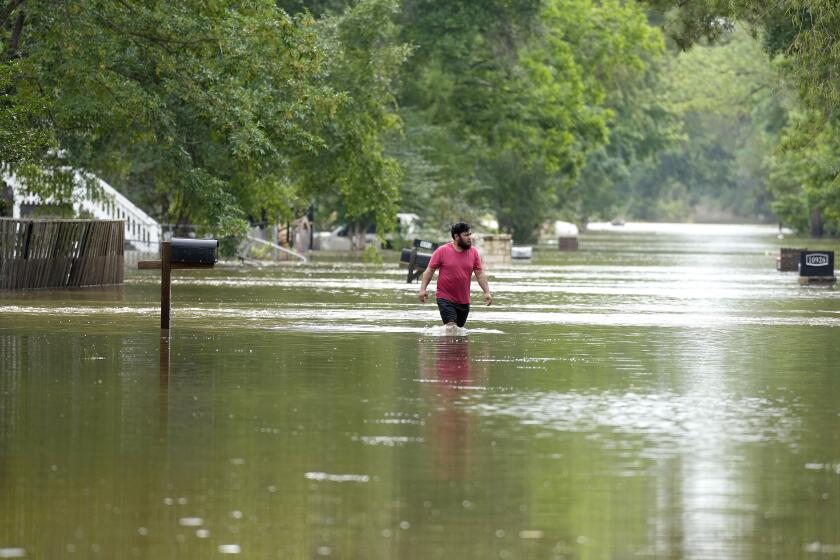Kremlin Summons Estonian Leaders : Soviets Want to Talk About Baltic State’s Challenge for Control
The Kremlin today said it was calling Estonian leaders to Moscow to discuss the tiny Baltic republic’s declaration of its sovereignty--a challenge to central Soviet control.
The first official reaction to the vote of the Estonian Supreme Soviet on Wednesday was announced by the official Tass press agency while the Parliament in a second Baltic republic, Lithuania, was meeting to consider similar action.
Estonian legislators passed an amendment to their own constitution Wednesday requiring local ratification of new Soviet laws.
Constitution Problem
“Taking into consideration that the amendment and a number of other documents adopted by the Estonian Parliament are at variance with provisions of the current Constitution . . . the Presidium of the U.S.S.R. Supreme Soviet has decided to consider the above-mentioned issue at its next meeting, with representatives of the Estonian republic to be invited,” Tass said.
The tone of the Tass statement was measured and appeared to stop short of an outright declaration that the Estonian Parliament’s action was unconstitutional.
It did not say when the meeting would take place, but presumably it would be called before the next full meeting of the 1,500-member national Supreme Soviet, which is scheduled for Nov. 29.
Estonian officials were called to a meeting with President Mikhail S. Gorbachev at the Presidium on Nov. 9. Kremlin officials listened, but did not support their demands for greater autonomy. Two days later Politburo members were sent to Estonia, Lithuania and the third Baltic republic, Latvia, to preach restraint.
Angry About Amendments
Baltic residents are angry about proposed amendments to the national constitution that they say takes away the republics’ right to secede and further strengthen central control, rather than encouraging the local control that Gorbachev stresses is necessary for his reform movement to succeed.
Tass announced that the Lithuanian Supreme Soviet had begun its meeting in the capital of Vilnius, where it was expected to take up legislation similar to that passed in Tallinn, Estonia.
The Estonian vote of 258 to 1, with five abstentions, on the declaration of sovereignty in all areas except foreign and defense policy followed a restrained, serious debate in the Estonian Supreme Soviet.
The declaration calls for a treaty with Moscow that would “determine the further status of Estonia in the composition of the Soviet Union.”
Annexed in 1940
In 1940, the Soviet Union annexed the Baltic republics, which have looked toward the West and rankled under Soviet control.
Proponents of the Estonian action said it was consistent with Gorbachev’s calls for greater democratization and local control, and with ritual declarations of autonomy for the republics contained in the Soviet constitution.
Marju Lauristen, a leader of the Estonian People’s Front, a nationalist mass movement, said Gorbachev might be angry at first.
“But when he thinks deeply, he’ll think we’ve supported perestroika more deeply than he expected. Moscow could have expected worse,” she said in an interview. Perestroika refers to Gorbachev’s plans for reforming the Soviet economy and society.
More to Read
Start your day right
Sign up for Essential California for news, features and recommendations from the L.A. Times and beyond in your inbox six days a week.
You may occasionally receive promotional content from the Los Angeles Times.






